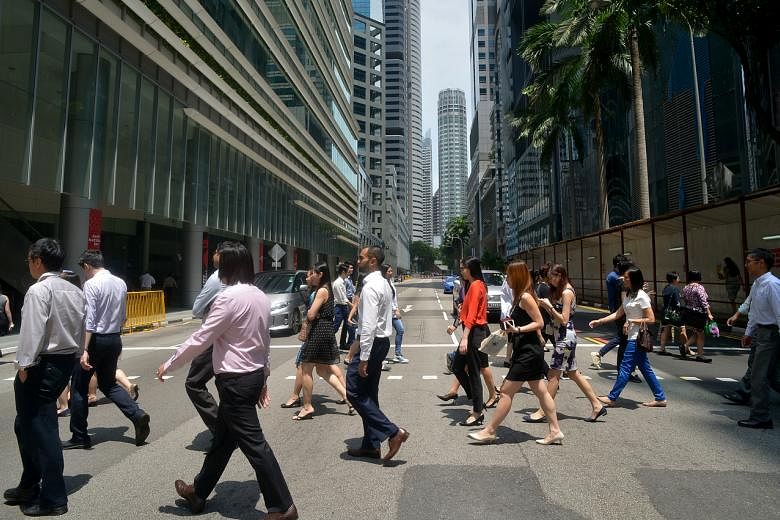SINGAPORE - Public servants will have more training to develop a broader range of skills and also experience in the private sector, where they can absorb new ideas, said Trade and Industry Minister Chan Chun Sing on Friday (Feb 28), as he outlined plans to transform the public service.
Speaking in Parliament during the debate on the budget of the Prime Minister's Office (PMO), Mr Chan, who is also Minister-in-charge of the Public Service, painted a picture of a new kind of public servant - one who has the ability to deliver the services of multiple agencies, having had the benefit of training and rotation through different domains in a more porous public service.
He said public servants today are expected not just to set policies, but also to translate them smoothly into operations, and be able to communicate them to the public, while also being aware of things happening beyond the public service.
For businesses too, the public service will have to shift from ensuring compliance to helping them grow.
"With the change in public expectations, with the change in the job scopes, we will certainly need to change the skill sets of our public service officers," he said.
Responding to questions from various MPs, Mr Chan said the public service will structure training so officers will receive a boost in skills "every few years" to ensure lifelong employability.
He said: "When we ask our public service officers to be agile, it can't be at the age of 40 or 50, it must be done systematically from the age 20 and above."
Another change would see public servants being rotated more regularly across and within domains, so they have a greater understanding of how things are done in different places.
"For example, in regulatory methods, by being able to go to different agencies and see how different regulatory ideas are applied, it will allow our public officers to be much more responsive, much more agile," he noted.
Public service officers, especially those in leadership positions, will also have regular stints in the private sector, to expose themselves to the challenges faced there and to "bring back good ideas" that have been implemented in that realm.
Mr Chan said there will be "greater porosity" within the public service, from recruiting people based on more than just their academic qualifications, to the way they are developed and posted throughout the term of their service.
The transformation of public service would provide citizens with one that is more integrated and efficient, according to Mr Chan, with digitalisation also bringing about faster and cheaper delivery of services.
He said officers will be equipped with the ability to deliver the services of multiple agencies on their own.
"So someone who needs help, from financial assistance to housing and employment, can approach the same officer with the same understanding, so that he doesn't need to repeat the story over and over again,"said Mr Chan.
To aid businesses, he said the public service will shift from simply ensuring businesses comply with the regulatory framework, to helping them develop and grow, which is "a very different mindset shift".
"When we work with a start-up, it is not about the start-up trying to fit into the current regulations. The regulators also need to change their mindset whereby they embrace a start-up culture, to see how regulations can evolve to become a key competitive advantage for Singapore," said Mr Chan.
Mr Chan also responded to a question from Non-constituency MP Leon Perera on the national programmes under the purview of the PMO and why some are not housed under the domain ministries instead. Mr Perera noted that the PMO's budget had significantly increased from when he first entered Parliament after the 2015 general election.
Mr Chan replied that programmes are housed under the PMO if they deal with strategic issues with long-term consequences, and if they require close coordination across many agencies.
He said programmes involving nascent new capabilities are also housed under the PMO, where they can incubate and develop before being passed on to a relevant ministry. He cited the Municipal Services Office under the Ministry of National Development as an example of an agency that began under PMO, but later shifted to the purview of another ministry when its capabilities matured.


